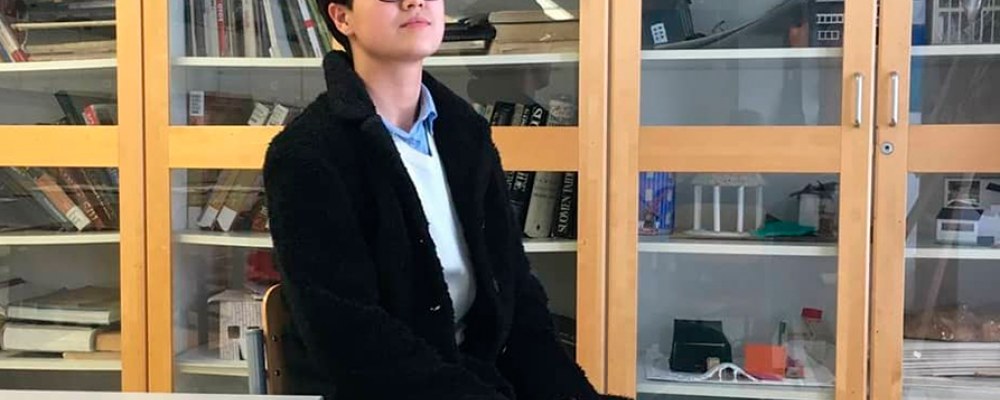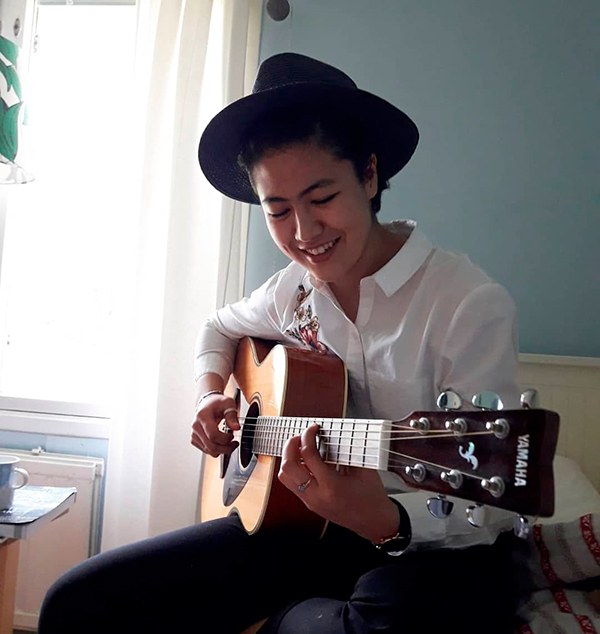
Shähla Idikut won with her research on UVB-treated bacteria
Shähla Idikut, 19, combined genetics and microbiology in her awarded research. She shared the first prize of the TuKoKe science contest for young people with Valtteri Aurela.
Shähla Idikut is happy. The 19-year-old has just won ”Tutki-Kokeile-Kehitä” (or TuKoKe), the Finnish science and technology competition for students and children. She shared the first prize with Valtteri Aurela in the category for high school students and vocational students (read more about Valtteri’s work in Finnish).
The competition was organized online because of the corona virus. The jury members interviewed the competitors online. The award ceremony was held online on 24th April. Last year the finals took place in Aalto Design Factory.
– It was easy to take part, even though I wished I would have met other participants too. Nonetheless, I was happy to attend TuKoKe finals that were held in these exceptional times, Shähla says.
Her research was about the different DNA repairing mechanisms of bacteria after they have been harmed by UVB radiation. She wanted to know how bacteria can survive after their DNA are harmed by UV radiation and how the repairing mechanisms take place. She mainly focused on the efficiency of two repairing mechanisms: direct reversal and nucleotide excision repair.
I have a strong passion for natural sciences.
– I have a strong passion for natural sciences. It was clear from the beginning that my research would be biology-related. Later I decided to combine my most favourite topics in biology: genetics and microbiology, Shähla says and continues:
– Although I had many other options and interesting things to investigate, I had to limit my research topic to something that can be done in a high school lab.
At the time of the research Shähla was studying in the IB Program in Joensuun lyseon lukio.
Shähla’s research was awarded as the best applied research in the Tutki-Kokeile-Kehitä competition.
She says the hardest moment during her research was when her first experiment failed due to too many bacteria colonies caused by the high bacteria concentration. She had worked on the experiment for three days, but at the end, there were no results.
– That is to say, getting satisfactory results from this type of research requires motivation and determination. So, I experimented again, and finally succeeded.
The best moment was when she finally had collected research data, and it was usable.
– I want to thank my supervisor Adam Lerch for his guidance and support throughout my work.
In September Shähla will travel to Spain with Valtteri to represent Finland in the European Union Contest for Young Scientists EUCYS.
In the future Shähla would like to study medicine. She is also keen on the idea of becoming a researcher especially related to microbiology.
– I deeply realize the importance of researchers in the field of microbiology that will be especially needed in these extraordinary times.

- You can read more about Shähla Idikut’s research here.
- All the awards of Tutki-Kokeile-Kehitä 2020: www.tukoke20finalistit.fi/palkinnot
- Tutki-Kokeile-Kehitä is organized by Academic Engineers and Architects in Finland TEK and Development Centre Opinkirjo.